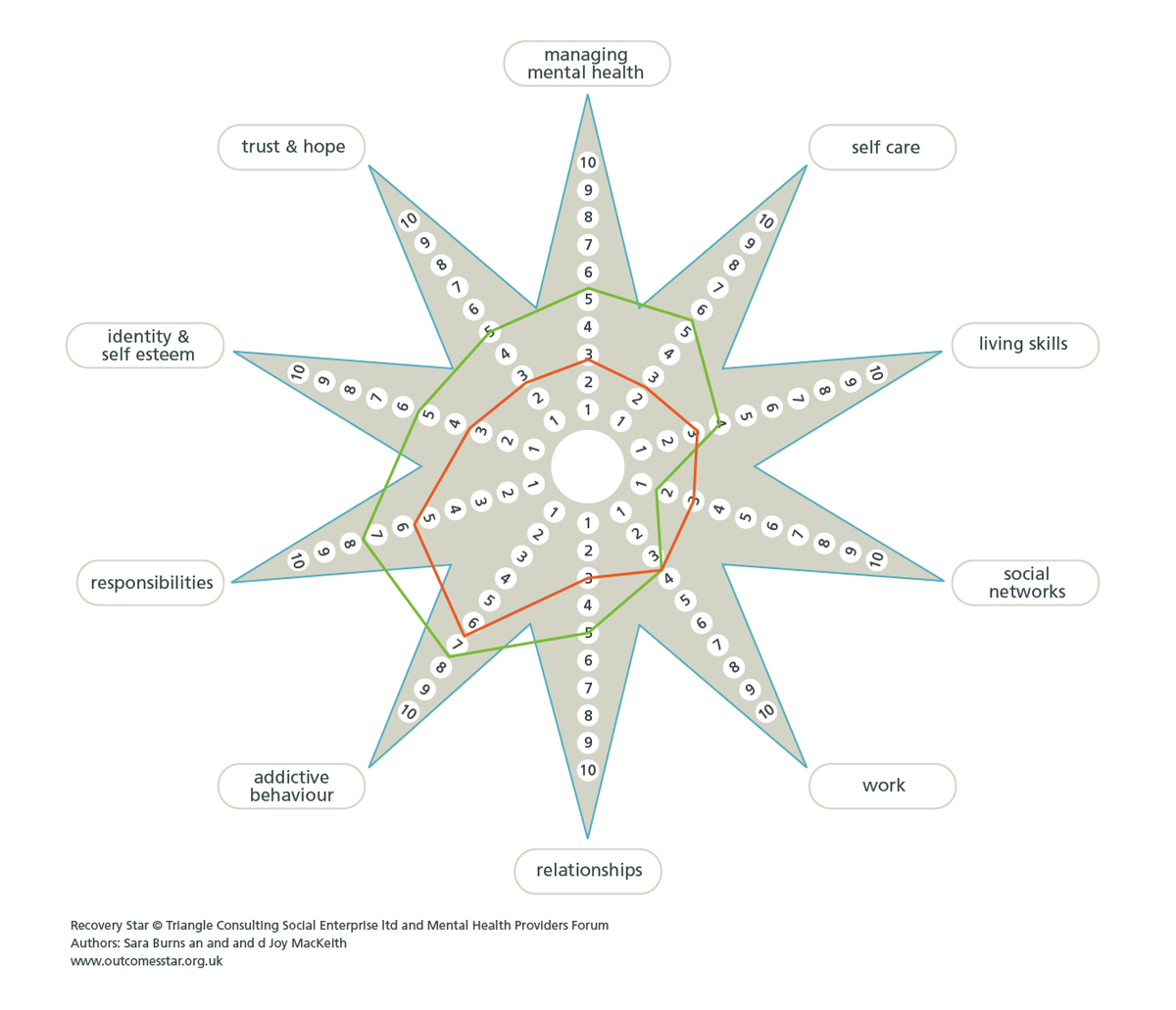Developed by Triangle Consulting in the UK, the Outcomes Star™was initially created for agencies working in the homeless sector to simultaneously measure and support client progress towards self-reliance or other goals using a strength-based and forward looking tool. With more than 22 different versions (http://www.outcomesstar.org.uk/star-versions/)currently available, the Outcomes Star™ suite of casework tools is appropriate across a range of sectors and client groups. All versions are also based on a set of core values in which people are empowered as meaningfully involved agents of change through a collaborative process of assessment and measurement that is integrated into casework practice
The Outcomes StarTM tools have been designed to support sustainable change while providing evidence of the steps people take to realize that change through a collaborative process of assessment and measurement.
Each version of the Star consists of a number of scales based on an explicit model of change (Mental Health Recovery Star pictured here). The attitudes and behaviours expected at each of the points on each scale are clearly defined in detailed scale descriptions, summary ladders or quiz format.
Typically an Outcomes Star™ reading is taken by the worker and service user at or near the beginning of their time with the program. Using the ladders or other scale descriptions, they identify together where on their ladder of change the service user is for each outcome area. Each step on the ladder is associated with a numerical score so at the end of the process the scores can be plotted onto the service user’s Star. The process is then repeated at regular intervals (every three, six or 12 months depending on the project) to track progress. The data can be used to track the progress of an individual service user and to measure the outcomes achieved by a whole program.
The Ladder of Change
One of the key features of the Outcomes StarTM is that all versions are based on an explicit model of change and the steps that service users take on their journey towards self-reliance, recovery or effective parenting – the Ladder of Change.
These models are informed by literature within that sector and are developed with workers, managers, and service users, ensuring coherence, rigor and credibility with staff.






